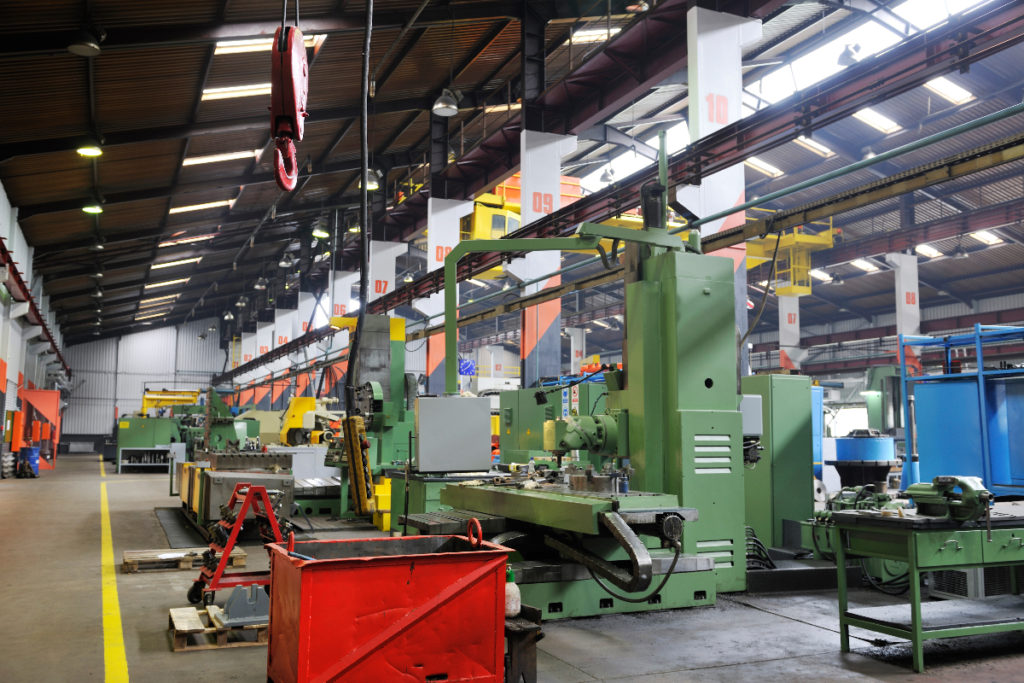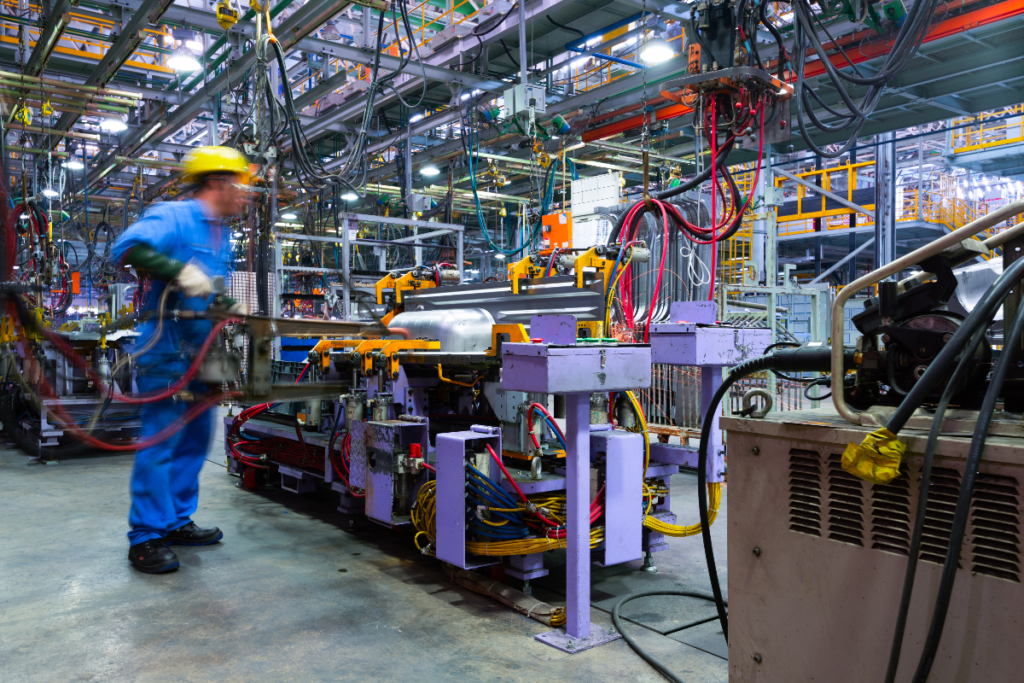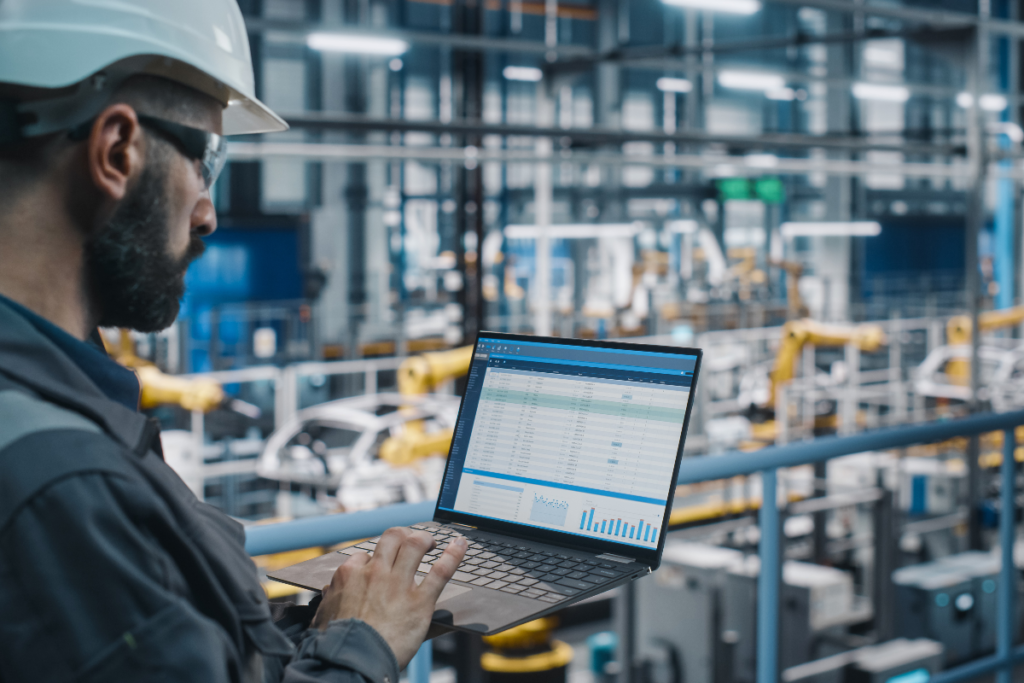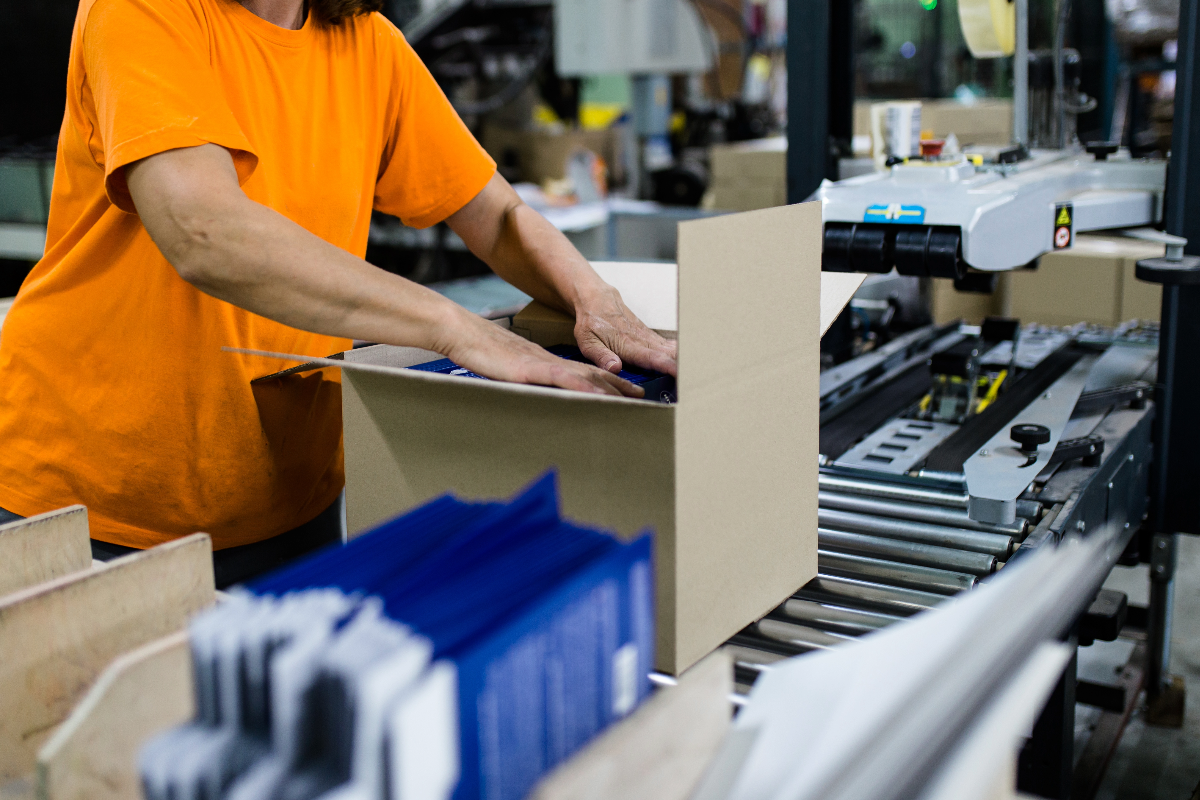BLOG
Manufacturing Waste: How to become more sustainable

It’s now more important than ever that businesses are showing that they’re trying to become more sustainable. A third of all consumers are looking for brands with strong sustainable and ethical credentials. It’s not just consumers, almost two thirds of small and medium sized businesses want to improve their environmental sustainability too. To do this, they’ll look at their supply chain – and if you don’t align with their goals, you’ll miss out.
But what can you do to improve your manufacturing waste management and become more sustainable? Here’s our four top tips!
What is manufacturing waste?
Manufacturing waste covers any waste that is generated from the manufacturing process. This is a broad term with many different types of waste falling into this category. Some of the most common types of waste found include metals, sawdust, packaging and even chemicals. Pallets are also a common sight in manufacturing facilities due to their use for storing and delivering goods.
We helped one manufacturer increase their recycling rates by over 85%! Click the link below to find out more!
1. Consider Closed Loop Manufacturing
Closed loop manufacturing is often used interchangeably with the term ‘circular economy’. It basically means that any resources created are turned into something new – closing ‘the loop’. This ensures that products aren’t just used once and thrown away, but everything is given a new life. This doesn’t have to be the products you create. For example, IKEA has begun making sofas and rugs from recycled PET bottles. Switching to a closed loop manufacturing model is a great way to become more sustainable as it protects our resources. It reduces the amount of waste that ends up in landfills too.


2. Reuse every material
You’re likely to have lots of packaging material in your warehouse and these can be part of your plan to become more sustainable. Reusing these items can be an easy way to help your business meet its sustainability targets and ambitions. Take pallets, for example. Their life doesn’t have to finish once you’ve had your delivery or packed your goods. When we collect pallets, any that are in a good condition go into the market for reuse. But, even if your pallets get damaged in the process, they can still be reused. We can repair any that have less than four broken components or use them as replacement components for other pallets. You could also invest in reusable packaging to minimise the waste produced.
3. Invest in machinery
Machinery is also a good way for your factory to work towards sustainability goals. Investing in waste management equipment, such as balers and compactors, can help cut your costs and your environmental impact. These pieces of equipment work by compressing the waste into a smaller, more compact size. This means that you can store more waste in the same amount of space. Doing this means that you can go longer between your waste collections, helping you to cut down on the costs of collection. Also, because there’s less travel, less CO2 is emitted from transport which helps your manufacturing site to reduce its carbon footprint.
4. Implement a recycling plan
Having a recycling plan is a crucial part in reducing your site’s environmental impact. When you set out your plan, you’ll need to take a look at every waste stream your site generates. Having a thorough understanding of the waste you generate ensures that you can find the best recycling and recovery route. You’ll need to get your staff on board too. You could have different bins for every waste type, but you’ll need to provide the necessary training and information to staff so they know exactly what to do with the waste they’re handling. Once they’re on board with your plan, it’ll be easier to achieve your sustainability goals.
Contact us
Want to make more sustainable choices with your manufacturing waste? Flame UK can provide your site with a bespoke waste management plans tailored to suit your business’ needs – no matter how complex. Get in touch with our waste experts today to learn more about how we can support your business.




